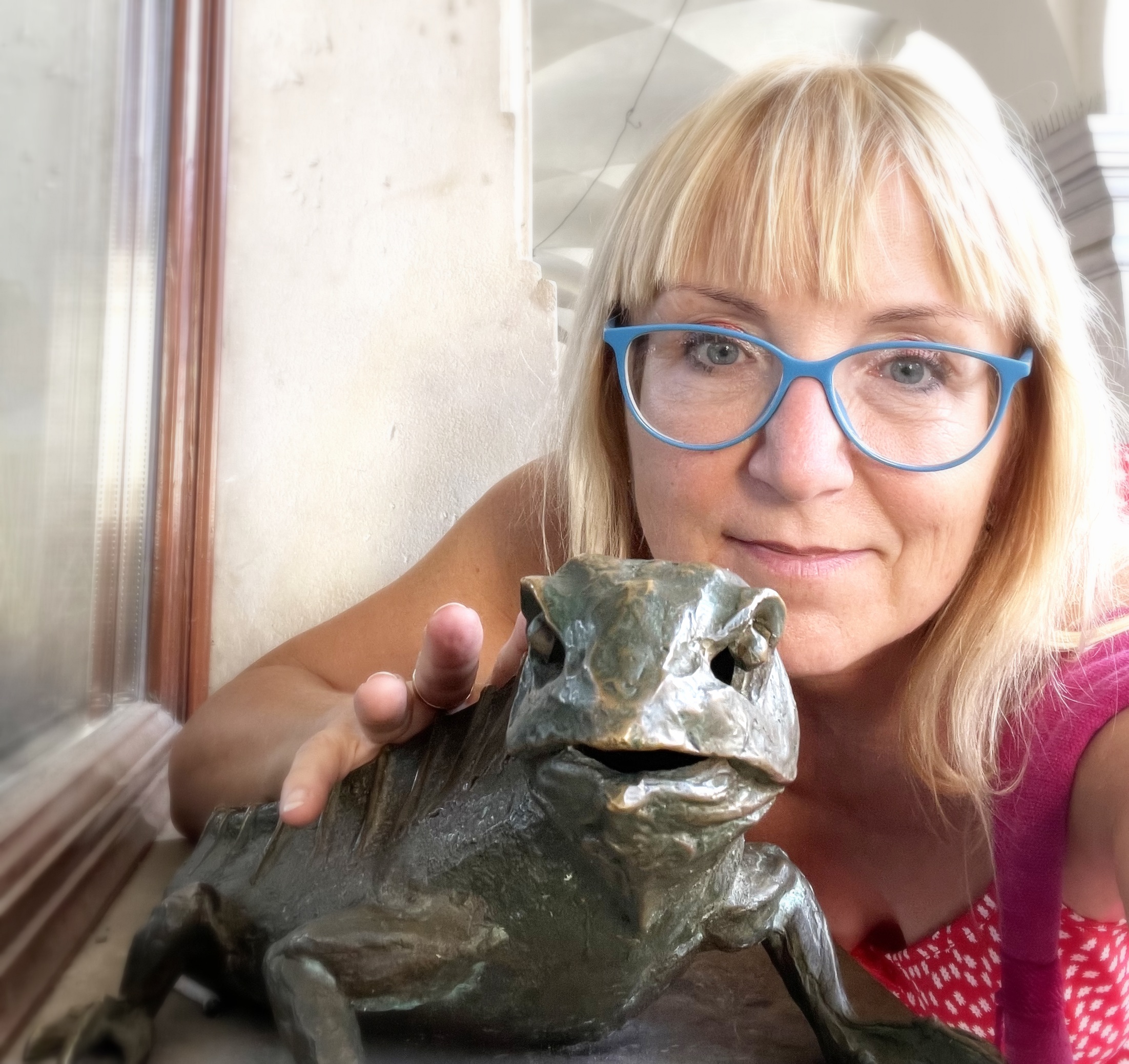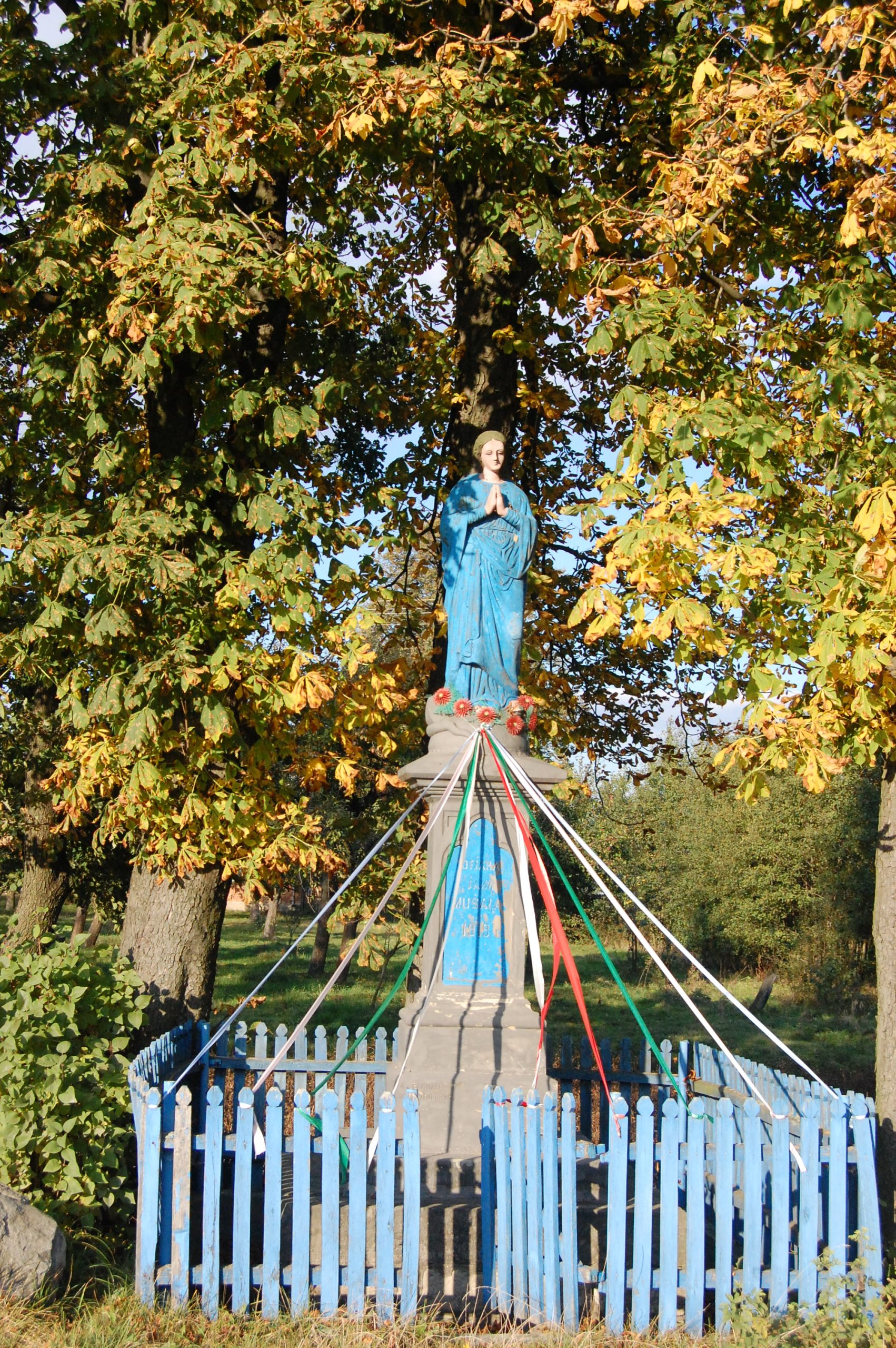„Magnolia: Encounters in the Past and Present”
– Agata Koch’s love letter to her childhood in Milanów and to places that create connections.
Brygida Helbig
This autobiographical book practically demands a leisurely, multiple reading that reveals new discoveries each time. It blends vibrant, sensory, nostalgic memories with fascinating historical explorations and reflections on the present. The story of the author’s personal journey intertwines with her search for traces of a Polish noble family closely tied to her birthplace, adopting a nearly metaphysical perspective on the past. Koch’s poetic, metaphorical language, fairy-tale quality, and emotional tone shift with a popular scientific essay style. The book is richly illustrated with photographs from the author’s private archive, with a section of her poetry completing the work.
Magnolia, a heartfelt and meticulously crafted memoir by Berlin-based poet, photographer, and Germanist Agata Koch, is foremost an expression of love for her birthplace—Milanów in Podlachia (northwest Poland). Agata spent the first five years of her life there—a happy childhood, as she describes it. From that time, she draws energy to create spaces for herself and others wherever she is. One such place is the Polish Language Café (Polnische Sprachcafé) in Berlin, which she founded in 2012 and continues to tirelessly coordinate. The café draws creative people looking for connection and support, allowing the utopian dream of a welcoming world, with room for everyone, to become a little more real.
Magnolia is a book about longing for one’s birthplace, one’s origins, and also about the need for a sense of home. It explores how we can feel at home in an unpredictable world, despite past displacements and relocations (which also affected Agata Koch’s ancestors), and in light of today’s challenges, such as migration, wars, and exile. As globalization progresses, Koch suggests, local communities and a (symbolic) sense of home will become increasingly important in giving us a sense of relative safety and belonging essential for empowerment beyond victimhood. In my view, Magnolia carries precisely this message, inspiring laughter and deep emotion, especially because I have known the author for many years and know that her words reflect her life and her daily commitment to making this project of individual and social identity a reality.
Magnolia is a book suspended between nostalgia and utopia, portraying the idyllic childhood of a sensitive girl, a “little princess,” in a unique place that melds nature and culture, surrounded by kind people (and even sprites), where the only threat — quickly neutralized — is a turkey chasing her across the yard. This childhood becomes a personal mythology that the author draws upon throughout her life.
What makes this „paradise” childhood so special? First and foremost, it is the place —Milanów — once the estate of remarkable, socially engaged, patriotic people from one of Poland’s most prominent noble families, “whose members held many high offices and honors in the First Republic, the Kingdom of Poland, and the Second Republic.” Until 1930, the estate in Milanów, with its impressive park and orangery, belonged to Prince Włodzimierz Czetwerczyński, a participant in the January Uprising, and his wife Maria of the Żółtowski family. Later, one of their daughters, the charismatic Maria Tarnowska, inherited it, though she lost it in 1944 due to political upheavals.
During the Polish People’s Republic, the nationalized manor housed a school where Agata Koch’s mother worked as a teacher. Teachers and staff were given apartments in the former outbuildings, and it was here, in this enclosed little world, imbued with the atmosphere of the noble estate, that Agata was born. The beauty surrounding her during those early years gave her, as she suggests, a strength that would sustain her hope and resilience for a lifetime. “I loved going for walks. Today, I think it was my way of expressing freedom and boundless trust in the paths that would later guide me through life.”
The magnolia tree, which actually grew in Milanów’s park, symbolizes this idealized childhood spent in a multigenerational family, in a school filled with kind people, and amidst enchanting nature. This noble tree, associated in our culture with delicate beauty, nobility, and sensitivity, was later planted by the author outside her home in Berlin to foster a sense of continuity in her own biography.
The magnolia could be called a queen among trees, or perhaps a countess. Maria Tarnowska, a countess who features prominently in the book, shares this connection with the magnolia, and the author identifies with her as well.
Who was Maria Tarnowska, the last owner of the Milanów estate before its expropriation? She was a diplomat’s wife, a social reformer who continued her family’s tradition of patriotic and social engagement. During WWII, she worked as a medic and nurse, participated in the surrender negotiations of the Warsaw Uprising, was imprisoned and persecuted, and later lived abroad with her husband for many years.
Agata Koch points out that she was born only six months after the countess passed away at age 85. They may have walked the same alleys and looked at the same trees, as they inhabited the same environment. This connection gives Koch a sense of near-mystical connection with Maria Tarnowska, whom she also sees as an ethical role model, a reference point in her private mythology. A significant discovery confirming this spiritual kinship is Tarnowska’s memoir, Die Zukunft wird es zeigen (The Future Will Show), which describes her childhood and youth in Milanów. Impressions from readings of seemingly random books, as well as encounters with people connected to Milanów, add an extra dimension to Koch’s narrative.
However, Magnolia is not only about Milanów. Agata Koch touches upon other stages of her life: her school years in Lublin, her studies in Leipzig in 1983 (capturing the atmosphere of the fading GDR), her move to Berlin, the fall of the Berlin Wall, reunification, starting a family, building a home, and, of course, founding the Polnische Sprachcafé, where participants have the opportunity to share or even write their own stories, sometimes alongside the author herself in writing workshops.
Is autobiographical writing worthwhile? I think so, as it involves living more consciously, processing experiences, and shaping the future. It need not be an entirely realistic portrayal of reality. We can be subjective, and memory can be selective. Agata Koch treats her biography, especially her childhood, with mythologizing and romanticizing techniques (an approach explored by Berlin-based writer and creative writing teacher Lutz Werner).
This strategy is not only artistically appealing but also has a strong psychological and therapeutic dimension giving meaning to seemingly random events and life stages, exploring connections and messages, asking who we are and what our purpose (perhaps even mission) is. This lends depth to life. Although one must avoid shallow sentimentality, Koch largely succeeds in doing so.
Magnolia draws from the past to offer hope and perspective for the future, inspiring readers to look creatively and imaginatively at their own lives and uncover the treasures within.
Tłumaczenie: Katarzyna Cyran











